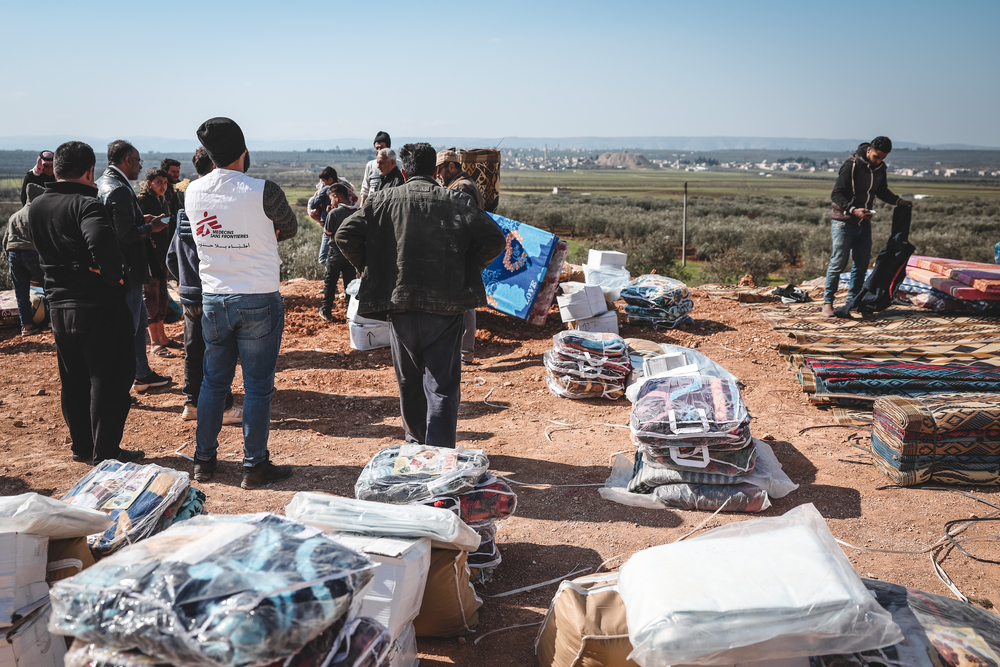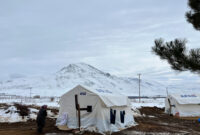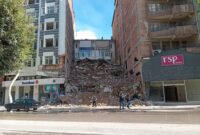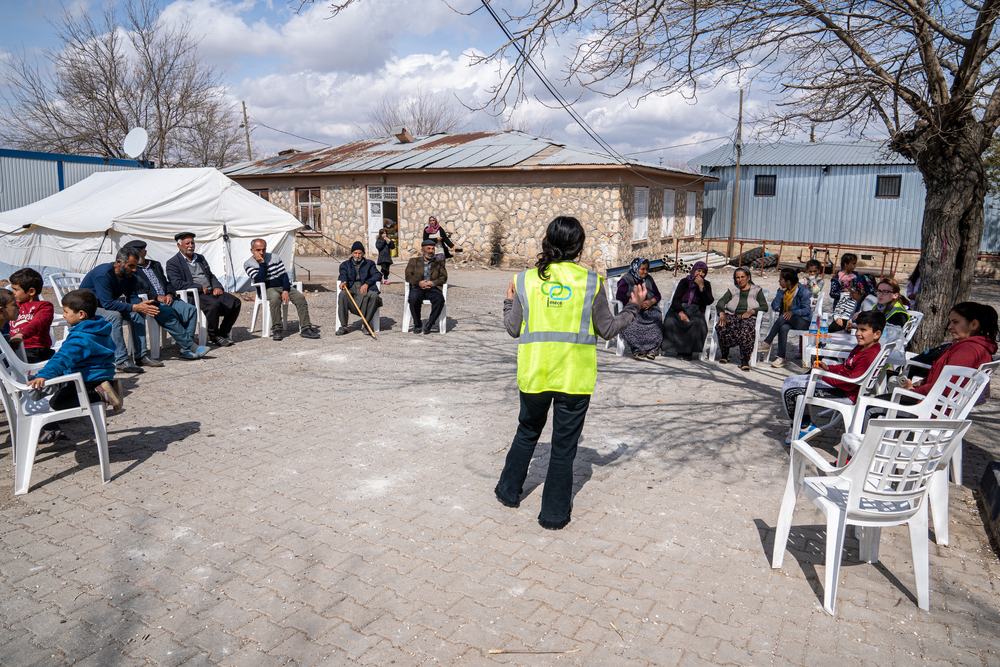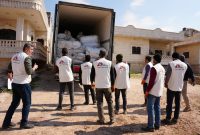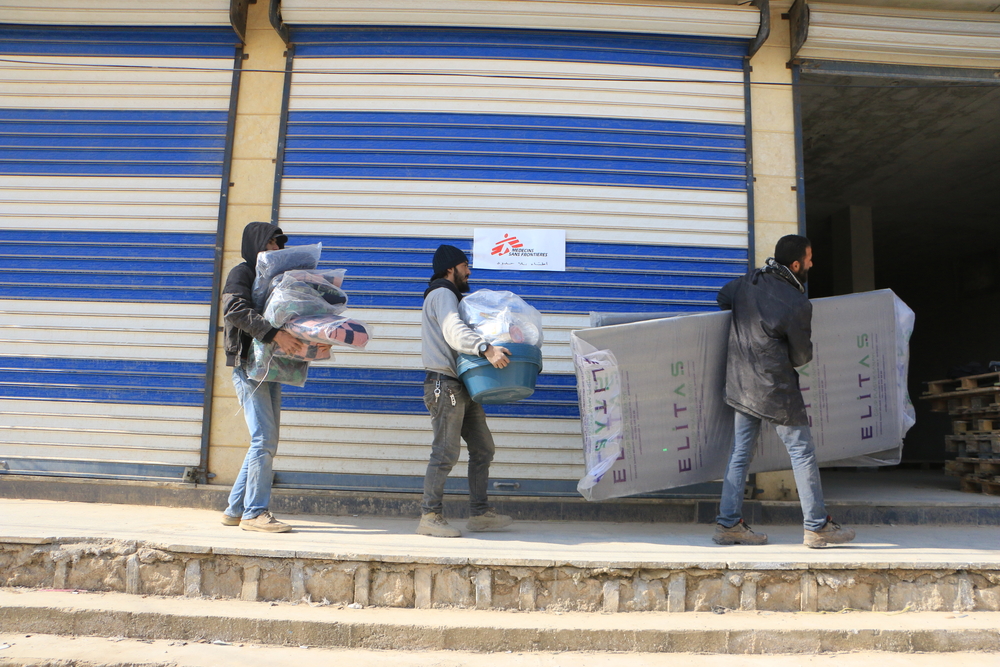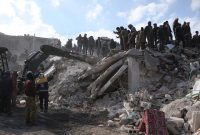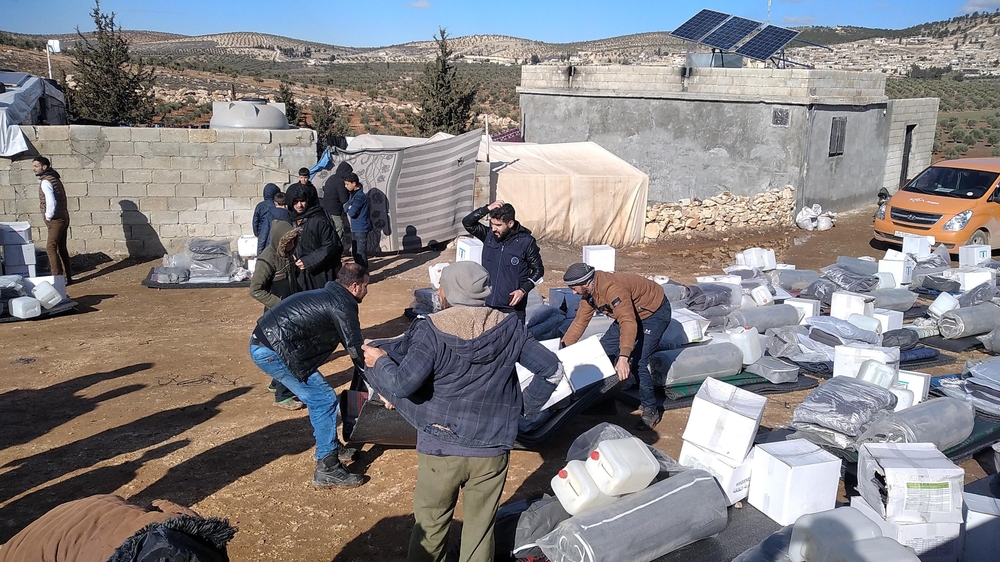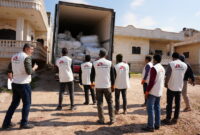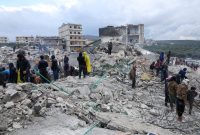Syria: MSF expands relief efforts and sets up mobile clinics in quake-hit areas
On Feb. 6 at 4.17 a.m., Mohammad and his family were shaken awake by the first of two massive earthquakes which hit large parts of northwest Syria and south Türkiye.
“When the earthquake shook all the buildings, my wife and I took our children and ran to the school playground,” says Mohammad. “We stood there in the rain, horrified at the devastation we could see around us. Buildings had collapsed and people were trapped inside. The situation was tragic.”
Mohammad and his family were living in a school in Azmarin, in Syria’s northern Idlib province, after being displaced from their home in Jabal Al Zawiya, around 70 kilometres away.
The earthquakes wrought major devastation, resulting in thousands of deaths and injuries and leaving many more without shelter, food or basic necessities. The disaster compounded an already desperate humanitarian situation. More than 180,000 people have been displaced by the earthquakes, adding to the two million people already living in difficult and precarious circumstances after being displaced repeatedly during 12 years of war.
After hours in the cold rain, Mohammad and his family found shelter under some olive trees. Two days later, still reeling from the shock of what had happened, they took to the road in search of refuge, along with other people made homeless by the quakes. “We kept moving until we reached this reception centre,” says Mohammad. “They helped us and took us in.”
Mobile clinics and relief items
Doctors Without Borders/ Médecins Sans Frontières (MSF) teams are responding to people’s medical and humanitarian needs as a result of the disaster. Initially our focus was on bolstering the emergency response capacity of local medical teams and donating essential medicines and medical supplies to health facilities and rescue teams. Today, we’ve scaled up our activities in northwest Syria, running four mobile clinics and distributing essential relief items including mattresses, hygiene items, cleaning materials and kitchen utensils.
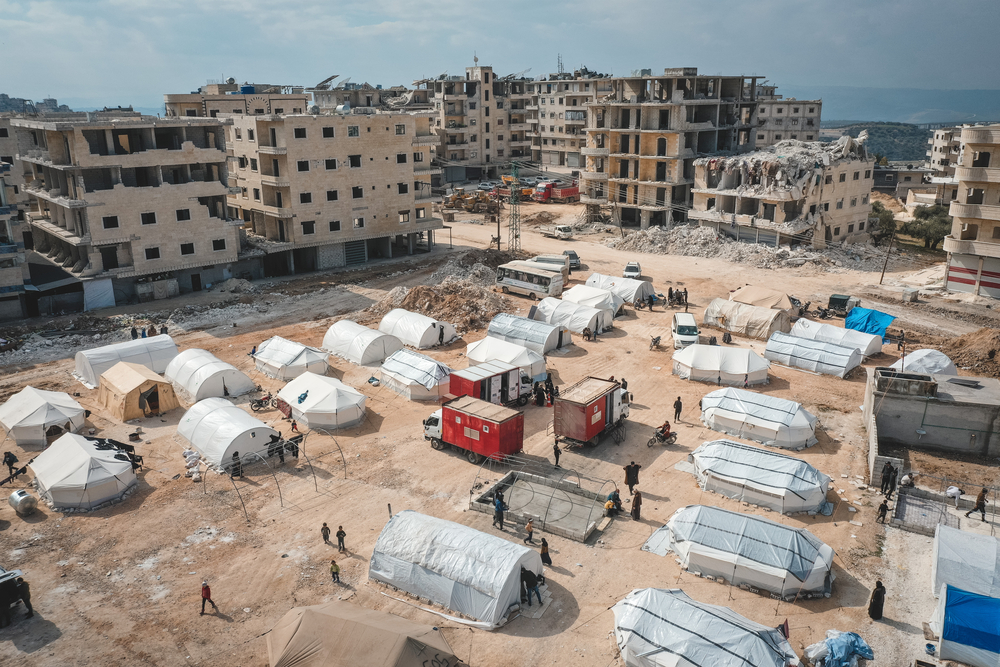
In Idlib, Syria, MSF teams have provided 5,667 medical consultations and distributed nearly 31,000 relief items, so far. At the mobile clinics, medics provide wound care, general medical care, care for chronic diseases, sexual and reproductive healthcare, mental health support and vaccinations for children.
“The earthquake has worsened the already dire situation for people in northwest Syria, where many people live in overcrowded and inadequate conditions with limited access to medical care,” says Dr. Ziad Marzouk, a chronic diseases specialist and member of MSF’s mobile clinic team. “The mobile clinics are providing essential medical care to those who need it most.”
More aid is urgently needed in northwest Syria
The earthquakes have highlighted the urgent need for humanitarian aid in northwest Syria and exposed a forgotten crisis in the region. Despite the aid that has reached some areas in recent days, there is an enormous unmet need for shelter, drinking water, washing facilities and heating equipment. People are also unable to access healthcare at a time where the disaster has left a huge psychological impact on people’s wellbeing.
“It is important that the humanitarian response does not fade within weeks of the earthquake but is instead strengthened and increased,” says Yasser Kamaledin, MSF country director for Syria. “The earthquake has presented new challenges in people’s ability to access basic needs including medical care. So far, in the two weeks since the earthquake, the humanitarian aid coming into northwest Syria has been too little and too slow. International aid must be urgently scaled up in order to preserve the lives and dignity of people living in affected areas.”
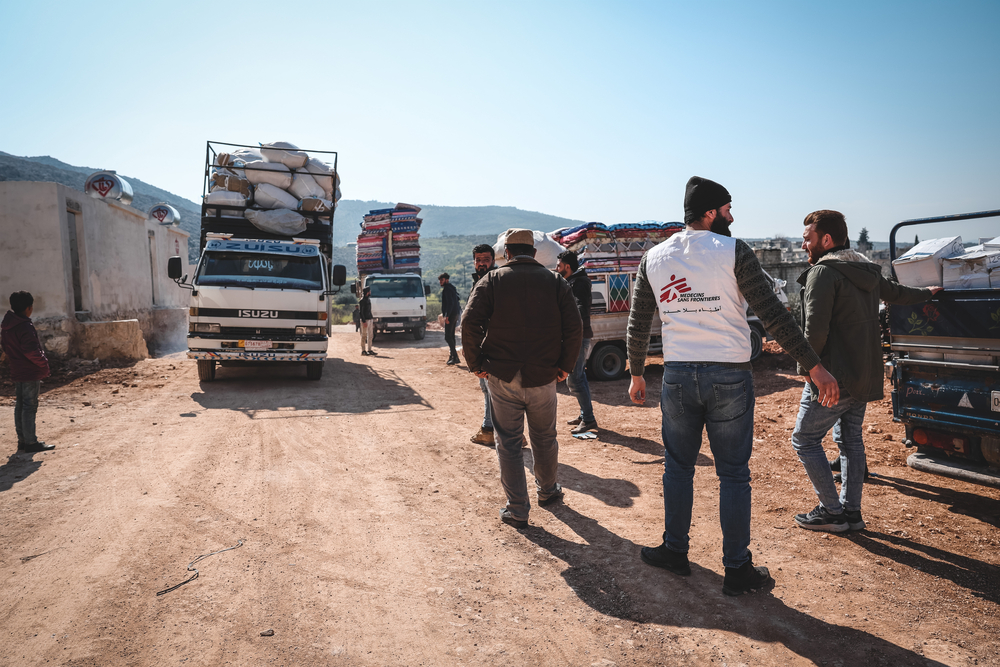
Like many others, Mohammad and his family are struggling to get through the cold winter nights without mattresses to sleep on or electricity to provide light and warmth.
“During the war, not knowing what would happen, we left our homes thinking we’d be back in a few days,” says Mohammad. “Instead we ended up with nothing. Now, following the earthquake, the same thing has happened. People are trying to help each other in any way they can, but we need at least mattresses to sleep on and light because there is no electricity. All the families here have been left with nothing.”
(Disclaimer: Mohammad is not the real name of the person mentioned in this article. The name and identifying details have been changed.)
